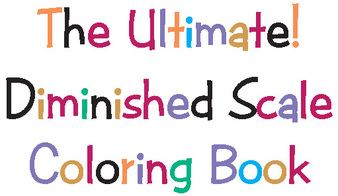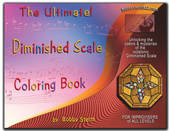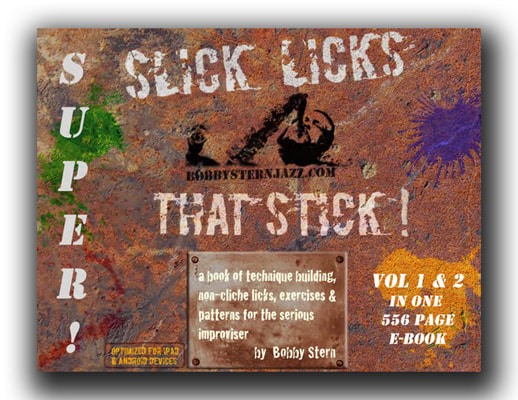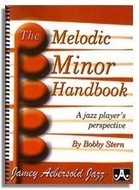A Conversation with Guitarist / Bassist Roy Louis
- Part 1-
musical colleague for almost 40 years.
As I discovered, it's not easy interviewing your long time friends, as the conversation can can very easily get sidetracked into many different cracks and crevices of shared experience.
"Man, do you remember.......?" became the common theme, only to realize, half an hour later,
that we'd gone way off on a tangent.
* * * * * *
Roy Louis is a native of the island of Curacao (pronounced KEWR-ə-sow)
formerly of the Netherlands Antilles, which has a unique place historically and culturally in
the overall picture of the Caribbean and Latin America. Aside from it's predominately European and African cultural influences dating back to colonial times, the average Curacaoan is usually well versed in Dutch, Spanish, English, as well as the island's native Creole language, Papiamentu.
This unique and diversified Caribbean culture began molding Roy Louis, the artist, at a very young age. Beginning his musical career semi-professionally at age 6, and being completely self taught on electric bass and then guitar, Roy, is without a doubt, the most purely
"intuitive" musician I have known.
Here's Part One of my conversation with "my boy", Roy!

RL: OK. It’s in the Caribbean, north of Venezuela, to be exact. It’s an island that is a former colony of the Netherlands. Before that, it was run, at one time or another, by the Portuguese, Spanish, French and English, eventually ending up in the hands of the Dutch.
That’s where I was born and grew up, until about my 15th year.
 Jan Akermann & Brainbox
Jan Akermann & Brainbox RL: Actually, around 10 years of age, I started thinking about knowing more about music. I had a sister, who at that time, was traveling and studying in Holland. On her vacations, she would bring back a collection of records that at the time, were pretty popular in Europe, but not popular in the sense of pop music; more like creative musicians checking out what else they could do other than the commercial stuff that everybody was doing.
BSJ: ....and who was that?
RL: One of them was a great guitarist from Holland named Jan Akermann.
BSJ: He was the guitarist from the group “Focus”, right?
RL: Later. At that time he was playing with a band called “Brainbox”. That’s the first guitarist I heard that was doing something other than the usual stuff. He was way ahead of his time.
Of course, there were other bands that were trying to do other kinds of creative music from which I was inspired, but when I heard Jan Akermann, I thought, “that’s the guy I want to sound like!” because I had never heard anything like that.
BSJ: Listening to them now in retrospect, they sound atypically late 60’s, a stylistic mix of highly amped blues, folk & rock.
 Robert Johnson
Robert Johnson BSJ: Who, Me?
RL: Yeah, I remember you told me one time, “Hey, hey! Wait a second! That style of guitar and vocal blues came from the States, from black people from the deep south, and is a copy of guys like Robert Johnson, Muddy Waters, and so on.” That’s how I found out. You remember?
You said, “No, you got to go back and check out the roots.” Now, I was pretty insulted (laughter). I thought I knew everything about blues, man! OK, I mean, all those English cats like Clapton, Jeff Beck and so on, including some great guitarists from the U.S. But from the States, you didn’t hear much until ’69 with Woodstock.

It also made me realize that if I wanted to play like that, and play music like that, I couldn’t stay in Curacao because there was nobody as an example in the Caribbean or in South America. I was very aware that I would eventually have to leave the island; but where to go? The only thing I knew about the States at that time was written on a can of soup “Made in USA”. (laughter)
BSJ: Up to that point, what kind of music had you been into?
RL: I was into many things, but I would say probably 90% R’n’B, ‘cause that’s what people used to hear.
BSJ: You mean like Motown?
RL: Of course. Motown, Stax, all those groups, you name it. That’s what I was playing at the time.
BSJ: I think the "label" for it then then was “Soul Music”.

RL: My father had no direct influence on what I was listening to then. He was into Cuban music, which at the time, wasn’t popular with the younger generation.
What we were listening to and playing, came out of Elvis Presley, the Beatles, Trini Lopez…..simple shit! Songs with three chords that you learned easily. Once I could play those three chords, it was already time to play in a band!
 6 yr. old Roy (top), 10 yr. old Elmer (bottom)
6 yr. old Roy (top), 10 yr. old Elmer (bottom) BSJ: You had a band with your older brother Elmer, who played guitar, right?
RL: Yes. Elmer played guitar and sang, plus occasionally, for the more latin rock sounding things, he would use the congas. I was playing bass and sang lead.
BSJ: Were you playing any guitar at all?
RL: Not in the band, but I was always playing guitar at home, checking things out, just for myself.
BSJ: When did you decide to leave the island and where did you go?
 Guillermo Marchena in flight
Guillermo Marchena in flight So, through Guillermo, Elmer and I wound up in Holland in late 1972. When we got there, Guillermo informed us that the band we were supposed to be joining didn’t exist anymore. We needed to basically start a whole new band, and since we couldn’t find a good guitarist, I switched from bass to guitar.

I would tell him, “I really like this music and this style. What do I have to do? What do I have to study in order to play it?” because up to that point I was only playing blues and rock.
He said, “All you've got to do is listen. Just listen.” That’s all he could tell me, since he didn’t know any theory or anything. So he made me a collection of tapes, which included a lot of stuff from the CTI label; a bunch of George Benson and three or four albums by Freddie Hubbard. So my first steps into the world of jazz were from those CTI albums. I was listening and listening and trying to copy, you know. So, I learned something from playing with this guy.
 Sinto
Sinto Originally, we had no place to stay and ended up sleeping behind a department store, hoping that it would be only for a night. Well, one night became two. Then it became a week, then two weeks.
Meanwhile, Guillermo, who was the only one of us who could speak any German, or even passable English at the time, had met some gypsy guys playing on the street. He told them about us and about our situation. They told Guillermo that they knew a local violinist, half gypsy, half German, who might be able to help us out.
The guy, whose name was Hannes Beckmann, had a band called “Sinto” which was playing the local clubs in and around Munich; kind of Latin & Brazilian and some original tunes mixed with gypsy violin.
His guitar player was about to leave, or had already left so he needed somebody. It was very lucky that he walked in at that point. The only thing was: I didn’t have a guitar.
So he gave me what was really just the frame of a guitar; all messed up. On top of that, it was cut for a left handed player. Guillermo said, “It’s on you, man. You’ve only got one shot”.
So I played my ass off left handed on this guitar and got us the gig!
BSJ: At least you didn’t have to play it with your toes! (Laughter)

I said, “Yes, I really want to learn.”
Then I met the well known trumpeter Dusko Goykovich, who saw me playing on a good night with “Sinto”, and he told me, “Listen, I’m about to form a big band, and you’re one of the first people I’m asking”.
I felt like telling him, “no”, since I didn’t think I could read that music and was kind of scared. But I went to the rehearsals and luckily, I started understanding the chord symbols, which was mostly what the guitar parts were made up of, anyway. So, I was good enough, and he kept me in the band.
I felt like, man, I’m in the band with all these older guys who can really play and whom I can learn so much from. I felt like the hand of God put me there, ‘cause there was no better way for an aspiring musician to acquire knowledge than being with such great musicians as these.
So I was playing pretty steadily with several of these bands. As I’m sure you remember, there were quite a few places to play in Munich. I started to gradually break into the recording scene. So I was able to get by pretty good. I think most musicians at that time were pretty satisfied with their situations. Things were much different, overall, than they are now.

Man, all of a sudden we went from being on the street to playing these big festivals and being in the middle of all these guys like Thad Jones, Keith Jarrett, you name it! Man, I said, “Wow, this is something!”. Then came the recordings. There were companies begging me to endorse their instruments.
Things were going great, but as I was a little naïve still, at that point, it was like, I was trying to change Doldinger's music. It was because I could hear things. Even early on, I had a good knowledge of harmony. Maybe I couldn’t tell you what it was, but I could show you.
So I was trying to change Klaus’ music and nobody had ever told him shit like that, man!
I remember the keyboardist Christian Schultze telling me, “I admire you because you always come with a musical solution to any problem” but that nobody ever changes Klaus’ music.
And to Klaus’ credit, he always listened. He let me be myself and play the way I played. The only thing he told me was to work on my dynamics. Here and there I would add certain chords and he never objected, but he never actually took my suggestions and made any major changes or anything. He would say, “Roy, I think it’s fine like it is.” (Laughs)
I think the other guys admired me for having the balls to speak my mind, but I didn’t think it was a question of that. I was just a kid and kind of naïve. I didn’t know what it could mean to question the boss’s music. It didn’t occur to me then, that, you know, you had to take care of your gig. Klaus also schooled me on, and I didn’t really appreciate it until years later, what it meant to think in terms of the music “business”, in order to stay in the game. Another person might have fired me, but he was very cool about it and I still respect him for that.
 Roy Louis & the author, 4th & 5th from left
Roy Louis & the author, 4th & 5th from left So when you and I met, that was the beginning of the dream of being able to do our own music. When we started playing together, I said, “Wow, this is the way I hear saxophone.”
BSJ: Even though I was pretty raw at the time, I guess I had a certain energy and spirit, as well as a recording contract with Phonogram, which led to the formation of “Head, Heart & Hands”.
When I heard you and Elmer for the first time in a small club in Munich, I said, “These are the cats”. I remember Elmer playing this very “out” conga solo. I thought, this is the shit, the kind of abstract New York vibe that I had been missing since I’d been in Europe and wanted to recreate somehow.
RL: Well, you were a big addition to the scene. It’s difficult to put into words, but I always wondered why musicians played, or didn’t play, a certain way.

BSJ: So you knew Raul before the "Head, Heart & Hands" session?
RL: Since '68 I knew Raul already. He used to come to Curacao from Holland with a band called “Reality”, which he was part of.
BSJ: You knew him then before you went to Holland.
RL: Yeah, way before. It was through him that I became more aware of that…..and also the spirit of blues, and blues rockers from England. Y’know, like Led Zeppelin. Man, those guys meant business when they played. They were kinda limited musically, but what they played came straight from the heart.

BSJ: True! I didn’t know about any of those original guys until I heard the Rolling Stones and, following my curiosity, discovered Muddy Waters, Little Walter, John Lee Hooker, Sonny Boy Williamson, without whom there would never have been any; “British blues”. I’d heard Chuck Berry on the radio, but that was it. I thought he was a white dude.
RL: Well, let me add to that. It's kind of the same thing, when you talk about latin music. It disturbs me when people speak badly about Carlos Santana. When Santana came about in the late ‘60s playing that style, even though my father played Cuban music; I mean it was right in my back yard and I heard and saw my father play it on many an occasion; I still had to go via Santana to find out about Cuban music.
BSJ: That’s a great point, because I wanted to backtrack and ask you a bit more about your relationship to Latin music, in general, as you were growing up.
RL: Well, you would hear it all day long, on the radio, everywhere. But I was into (US) American music. Growing up at that time as teenagers, we considered Cuban music to be really square and corny. We wanted to be hip and contemporary and we looked to the States for that. It was the late ‘60s, a lot of changes were happening, you know.
BSJ: Did you get American TV in Curacao at the time?
RL: No. We only had one channel, the local Curacao channel. It came on at 5pm and went off at 11. We could also get two channels from Venezuela. The picture was very snowy, but we had to live with what we had.
 Miriam Makeba & Renny Ottolina
Miriam Makeba & Renny Ottolina I’d say that Renny Ottolina was extremely important in my early musical development. It was through his show from Venezuela that I was exposed to people like Herb Alpert, Miriam Makeba, Tom Jones, Stevie Wonder; all those acts from around the world.
BSJ: He had a weekly music show?
RL: Not weekly; daily! From 12 noon - 2pm, with interviews and music, all live! All the acts would come and stay for 2 or 3 weeks and perform live on the show every day. So, I would see Stevie Wonder for 3 weeks, man. Every day!
BSJ: That’s amazing! You didn’t even see that in the States.
 Hermanito Narvaez - present day
Hermanito Narvaez - present day You know as a kid, you don’t want to be like your father. It’s like, Cuban music was for the old people. Of course, we wanted to be identified with our own generation. In order to be hip, you had to be into the styles, music and fashion, that were coming, mostly, from the States.
I was also exposed by listening to a radio DJ by the name of Hermanito Narvaez, who had a program already in the late ‘60s, that he originally co-hosted with a woman named Aydita Ayoubi. She was actually the first one on the island to present something different, musically. Then Hermanito, being the co-host and a young guy, probably in his late teens at the time, started to push for more American music, groups like Steppenwolf, Led Zeppelin, groups like that which were hip at the time. Eventually he took over the show and when he did, you heard all the American hip stuff.

RL: All kinds of Cuban music, but not the folklore. Basically, everything that was being recorded on Seeco Records at that time. Let’s say, Sonora Matancera, featuring everybody.
I remember when I was about three or four years old, my mother threw out a record player along with a pile of 78 rpm shellac records that my grandmother had collected over the years. I guess they were collecting dust and were taking up too much space in our small house. I couldn’t understand this, and was very sad about it, so I went to the dumpster and pulled out the record player and the records; the ones that weren’t already broken. I cleaned them and put them on the turntable, which had no electricity but still had a needle, and turned it by hand, using a cardboard box as a kind of resonator.

This was important to me without realizing it at the time. As I mentioned previously, by the time I was in my early teens and playing in bands and listening to the stuff coming from, or by way of, the States, the older Latin style of my father’s era was considered square and corny by my generation. It wasn’t until I heard Santana a few years later that I was drawn back into my roots; legitimized, so to speak, with a new perspective, awareness and appreciation, of what was always in the air around me.
There's a whole lot more! Stay tuned for Part 2.
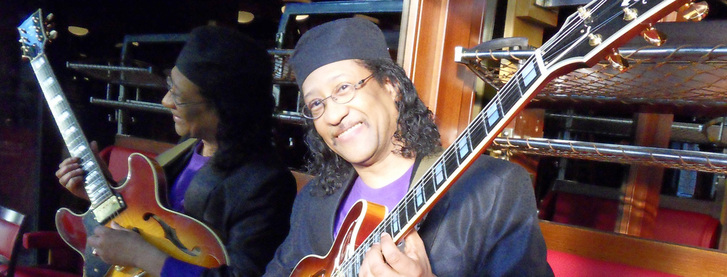

 RSS Feed
RSS Feed



